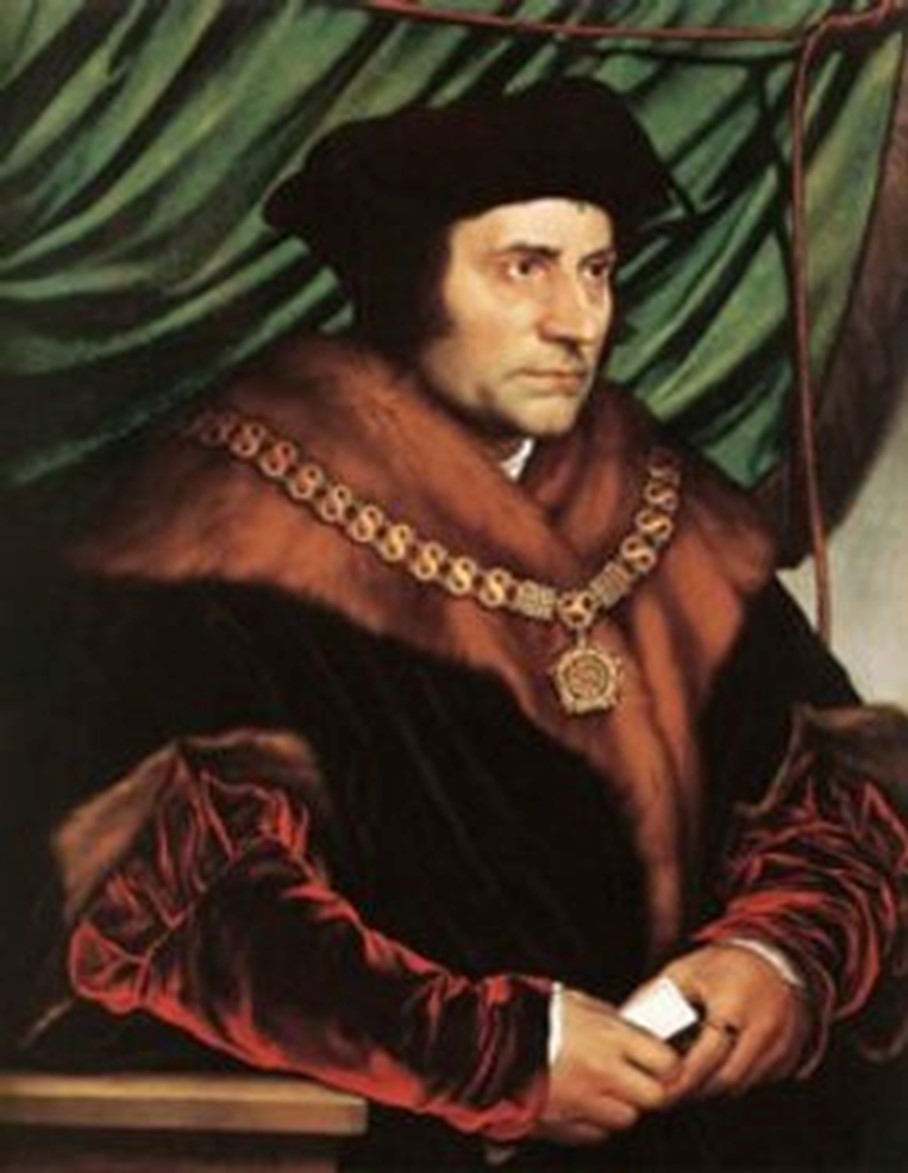
Born in London in 1478, More was a talented lawyer and politician in fifteenth-century England. Throughout his career, More became a trusted friend and advisor to Henry VIII, who eventually appointed More as Lord Chancellor of England. In this position, More worked closely with the King as they shared political, academic, and religious pursuits.
But when Henry VIII wanted to leave his wife Catherine in order to marry his mistress, Anne Boleyn, prominent English churchmen and aristocrats wrote to Pope Clement VII asking him to annul Henry’s marriage. Thomas More, knowing that the supremacy of the Pope was higher than the King’s, refused to sign the letter.
Later, in 1532, he refused to sign the Oath of Supremacy, which required any person in public office to swear allegiance to the King as Head of the Church of England. That same year, More resigned from his exalted position, but remained on good terms with the King.
It would not save him, however. As time went on, his conscience forbade him from complying with the King’s struggles to gain power over the Catholic Church in England or his demands to have More officially recognize his new wife as queen and her children as having the right to succession.
Finally, the King had had enough. Thomas More was arrested, found guilty of treason, and beheaded in 1535. As he went to his death, he spoke these famous words: “I die the King’s good servant, but God’s first.”
St. Thomas More is the patron saint of lawyers, politicians, and statesmen. During his life, he wrote several essays and books on history, politics, law, and more, including his famous Utopia.
His feast day is celebrated on June 22.
View a clip of the movie, A Man for All Seasons, a good overview of his life.
View a commentary on St. Thomas More by Matthew Kelly.




